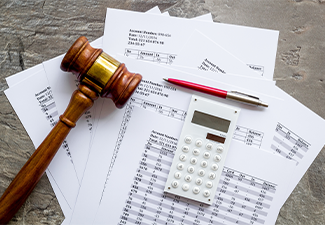17 Common Myths About Bankruptcy, Debunked
Oct. 14, 2024
 Bankruptcy is often viewed as a last resort for people or businesses facing overwhelming financial challenges. Unfortunately, misconceptions and myths surrounding bankruptcy can lead to confusion and apprehension about pursuing this legal solution. To help clear this confusion,
Bankruptcy is often viewed as a last resort for people or businesses facing overwhelming financial challenges. Unfortunately, misconceptions and myths surrounding bankruptcy can lead to confusion and apprehension about pursuing this legal solution. To help clear this confusion,
The Law Office of Scott N. Tisevich debunks some of the most common myths surrounding bankruptcy so potential filers can feel confident knowing they have the clarity they need.
Myth 1: Bankruptcy Means Financial Failure
One of the most pervasive myths about bankruptcy is that it signifies complete financial ruin and failure. In reality, bankruptcy is a legal process designed to help people and businesses regain financial stability when faced with insurmountable debt. It offers a structured framework for debtors to reorganize their finances or obtain a fresh start.
Myth 2: Bankruptcy Is Only for the Irresponsible
Contrary to popular belief, bankruptcy is not solely for people who have been financially irresponsible. Many factors are beyond one's control, such as medical emergencies, job loss, or economic downturns, which can lead to overwhelming debt. Bankruptcy provides a lifeline for honest debtors who are struggling due to unforeseen circumstances.
Myth 3: Bankruptcy Means Losing Everything
Another common misconception is that filing for bankruptcy requires debtors to surrender all their assets. In reality, bankruptcy laws include exemptions that protect essential assets such as homes, vehicles, and personal belongings up to certain limits. Additionally, Chapter 13 bankruptcy allows debtors to restructure their debts while retaining their property.
Small business owners can also file for bankruptcy while still operating their business, so they can continue to work toward their financial goals. Contact a bankruptcy attorney in Reno, NV for more information on how bankruptcy may impact one's assets.
Myth 4: Bankruptcy Ruins Credit Forever
While bankruptcy does have a significant impact on credit scores, it's not a permanent stain on one's financial record. According to Experian, bankruptcies remain on credit reports for a specified period (typically seven to 10 years) after which debtors can begin rebuilding their credit. Many people successfully restore their creditworthiness by adopting responsible financial habits post-bankruptcy.
Myth 5: Everyone Will Know You Filed for Bankruptcy
The fear of social stigma often prevents people from considering bankruptcy as a viable option. Bankruptcy filings are public records, accessible to creditors and other parties with a legitimate interest. However, personal bankruptcies don't attract widespread attention unless the person is a high-profile individual or business owner.
Myth 6: Bankruptcy Erases All Debts
While bankruptcy can discharge many types of debts, certain obligations are typically non-dischargeable. These may include child support, alimony, student loans (in most cases), and debts resulting from fraudulent activities. Debtors should consult with a bankruptcy attorney to understand which debts can be discharged based on their specific circumstances and the type of bankruptcy filed.
Myth 7: Bankruptcy Is a Quick Fix
Bankruptcy is a legal process that requires careful consideration and planning. It involves detailed documentation, court proceedings, and adherence to specific timelines. While it provides a pathway to financial relief, it's not an instant solution. Depending on the type of bankruptcy filed, the process can take several months to several years to complete.
Of course, working with an experienced bankruptcy attorney can help speed the process along. This is because attorneys know the ins and outs of the legal process, including which documents one may need to file and which deadlines one needs to meet.
Myth 8: You Can Hide Assets Before Filing for Bankruptcy
Attempting to conceal assets or provide false information during bankruptcy proceedings is illegal and constitutes bankruptcy fraud. Bankruptcy trustees and creditors have tools to uncover undisclosed assets, and debtors can face severe penalties, including criminal charges. It's crucial for debtors to disclose all assets and liabilities transparently to comply with legal requirements.
Myth 9: Bankruptcy Is the Same for Everyone
Bankruptcy laws vary significantly depending on the jurisdiction and the type of bankruptcy filed. Each type of bankruptcy has distinct eligibility criteria, procedures, and implications for debtors. It's essential for individuals considering bankruptcy to seek guidance from a qualified bankruptcy attorney who can provide personalized advice based on their unique financial situation.
Myth 10: You Can't File for Bankruptcy Again
While there are limitations on how frequently one can receive a debt discharge through bankruptcy, it's possible to file for bankruptcy more than once. The waiting periods between filings depend on the type of bankruptcy previously filed and the type currently sought. Debtors should be aware of these restrictions and consider them when evaluating their financial options. Reach out to a bankruptcy attorney for professional advice prior to filing for bankruptcy for a second time.
Myth 11: Bankruptcy Is Only for Individuals, Not Businesses
While bankruptcy is commonly associated with personal financial distress, it also provides relief for struggling businesses. Chapter 11 bankruptcy, specifically designed for businesses, allows companies to reorganize debts and operations while continuing to operate. It provides a framework for businesses to renegotiate contracts, reduce debt burdens, and emerge financially stronger.
Myth 12: Filing for Bankruptcy Is Expensive and Complicated
While there are costs associated with filing for bankruptcy, such as court fees and attorney fees, these expenses can be manageable and are often outweighed by the financial relief bankruptcy provides. Additionally, bankruptcy attorneys focus on guiding debtors through the process, guaranteeing compliance with legal requirements and maximizing the benefits of bankruptcy protection.
Myth 13: Bankruptcy Discharges All Tax Debts
While bankruptcy can discharge some tax debts under certain conditions, not all tax obligations are eligible for discharge. Income taxes may be dischargeable if they meet specific criteria, such as being due for more than three years prior to filing for bankruptcy and having been accurately filed. Other types of tax debts, such as payroll taxes or fraud penalties, are generally non-dischargeable and must be addressed separately.
Myth 14: Bankruptcy Will Impact Employment Opportunities
There is a common misconception that filing for bankruptcy will adversely affect employment opportunities. While some employers may conduct credit checks or background checks that reveal bankruptcy filings, federal law prohibits discrimination against employees or job applicants solely based on bankruptcy status. Employers are more concerned with a candidate's qualifications and skills rather than their financial history.
Myth 15: Bankruptcy Means You Can't Own Anything
Bankruptcy laws include exemptions that protect certain assets from liquidation to make sure debtors can maintain a basic standard of living. These exemptions vary by state and may include homes, vehicles, retirement accounts, and personal belongings up to specific dollar limits. Debtors can typically retain ownership of exempt assets during and after bankruptcy, allowing them to rebuild their financial stability without losing everything they own.
Myth 16: You Can Keep Credit Cards and Use Them After Bankruptcy
A common misconception is that debtors can retain and use credit cards after filing for bankruptcy. In reality, most credit card accounts are typically closed during bankruptcy proceedings, and creditors may be reluctant to extend credit immediately after discharge. Rebuilding credit post-bankruptcy requires responsible financial habits and may involve secured credit cards or small loans designed for individuals with impaired credit histories.
Myth 17: Bankruptcy Will Remove Liens From Property
Bankruptcy may discharge personal liability for debts, but it doesn't automatically remove liens on secured property (such as homes or vehicles). Secured creditors retain the right to repossess collateral if debtors default on payments, even after bankruptcy. Debtors must continue making payments on secured debts to retain possession of their property or negotiate with creditors to modify repayment terms.
Reach Out to Nevada Bankruptcy Attorney Today
By understanding the facts behind bankruptcy, debtors can make informed decisions to regain financial stability and pave the way for a brighter financial future. A knowledgeable bankruptcy attorney can help you work through the challenges of bankruptcy law and determine the best possible outcome.
If you're looking for an experienced bankruptcy attorney in Reno, Nevada, or the surrounding counties of Churchill, Lyon, Carson, Story, Douglas, or Las Vegas, contact the Law Office of Scott N. Tisevich today.
